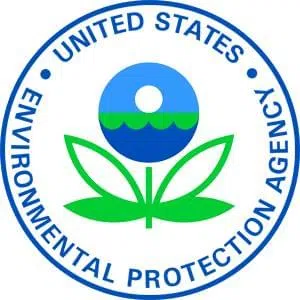
By Illinois Radio Network
SPRINGFIELD – The Illinois Environmental Protection Agency is overworked and understaffed to the point that it is putting residents’ health in danger, according to a report from the University of Chicago.
“Despite the laudable efforts of many IEPA employees, the agency lacks the assets it needs to protect the environment and public health sufficiently,” the report said. “These deficiencies hinder its capacity to execute its historical mission and are barriers to overcome if Illinois chooses to step up efforts to ensure that environmental protection is not compromised.”
The report said the agency’s workforce has been cut by about 50 percent from 2003 to 2018. At the same time, the agency has been given more responsibility for regulating businesses and less in federal support in recent years. Mark Templeton, clinical professor of law at the University of Chicago, said the department isn’t capable of doing all it should to protect residents.
“In the same way that we rely on the police to provide public safety, we rely on the Illinois Environmental Protection Agency to monitor the activities of industry and to hold them accountable when they’re violating the terms of the law,” he said.
Since 2003, inspections of air-pollutant emitting facilities have declined by 81 percent, air-monitoring technology throughout the state is outdated and needs to be replaced, the report said.
Illinois isn’t alone. Twenty-five states have imposed cuts of at least 10 percent on their environmental agencies; 16 reduced spending by more than 20 percent, when adjusted for inflation, according to a report from Environmental Integrity Project.
The solution, the report said, is more funding from the state in the form of increased business fees and statewide charges on plastic bags and bottles and a statewide stormwater fee.
“There are costs that are incurred from, for example, runoff that picks up pollutants,” Templeton said. “The idea is to encourage practices such as retaining stormwater on property or building what’s called green infrastructure.”
IEPA spokeswoman Kim Biggs said the agency was working with Gov. J.B. Pritzker to find solutions.
“The Illinois EPA appreciates the report’s acknowledgment of some of the challenges faced by state government regulators,” she said. “Like many Illinois state agencies, headcount and resources have decreased steadily over a number of years and under a number of directors and administrations. The Pritzker Administration and the Illinois EPA have been actively working to boost hiring, find creative ways to increase revenues, and effectively enforce environmental laws and regulations.”
The department has advertised 161 job postings in 2019.
Plastic bag bans have shown to have the unintended consequence of businesses offering thicker plastic bags. The city of Chicago learned this in 2017 and switched to a fee.
Stormwater fees are in place in many cities across Illinois, but carry the political stigma of “taxing the rain,” as seen when lawmakers introduced a bill to allow for a broader ability to institute the fees.
Illinois Radio Network can be reached at News@WJBC.com.




